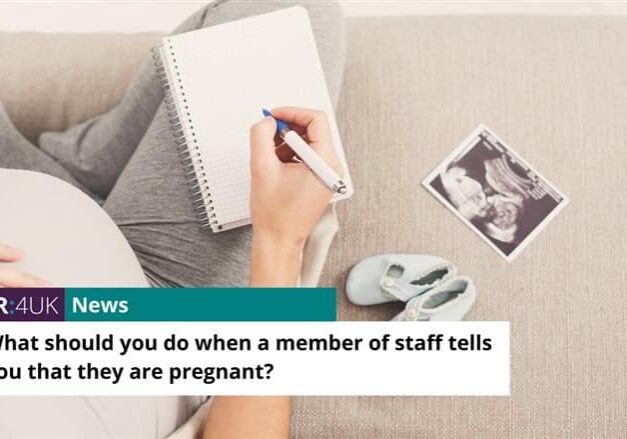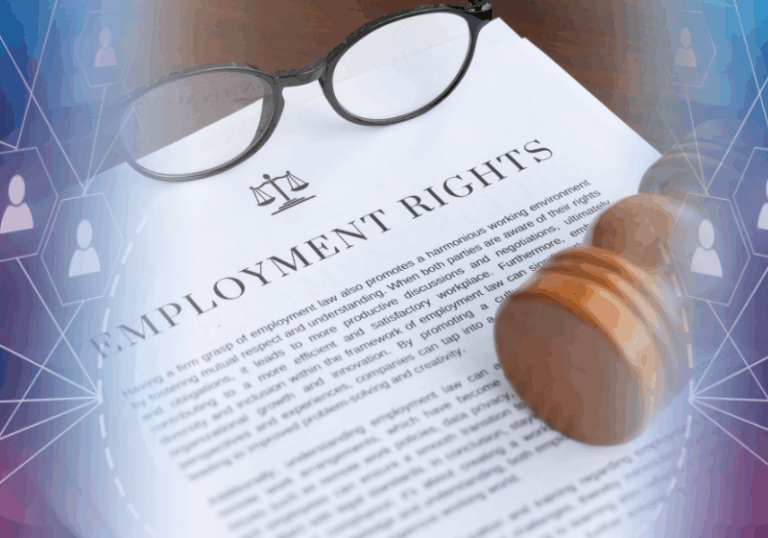How to manage pregnancy and maternity in the workplace

As an employer, one of the main responsibilities that will fall under your duty of care will be managing a member of staff once they have informed you that they are expecting a child, a case that has recently come across my desk as one of my team informed me that she is expecting twins in the summer months.
With our Operations Manager, Katie expecting the arrival of twins later this year, we are going to be sharing her journey, along with the key milestones with you so that you will become accustomed to your responsibilities, laws and duties of care you must undertake when an employee informs you that they are pregnant.
Firstly, let us look at some common questions you will need to take into consideration.
Are all members of staff entitled to maternity rights?
All employees qualify for 52 weeks of maternity leave from day one of their employment and have the right to return to their old job if reasonably practicable, or otherwise, a suitable alternative. However, if your member of staff is a worker, they do not have the same rights as an employee. If you are unsure of the employment status of a member of staff, speak to one of our expert advisors.
When should an employee inform you they are pregnant?
Legally, an employee must tell you that they are pregnant at least 15 weeks before their expected due date. Of course, an employee may want to share their exciting news with you before this time, not only because it is exciting news, but because they will also want to take time off for antenatal appointments. An employee does not need to inform you in writing that they are pregnant, but if you do ask for it to be in writing, they will need to do so. Your employee should be issued with a MAT1B form, which they will usually receive around 20 weeks or soon thereafter when they have a routine appointment.
When an employee tells you that they are pregnant, they must give you some details, in particular, you will need to know:
- The date of the week their baby is due; and
- The date they want to start their maternity leave.
Once an employee has informed you that they are pregnant, they will be protected against unfair treatment or discrimination that is pregnancy-related.
What should you do after an employee has informed you they are expecting?
Once you have been informed by your employee that they are expecting and certainly once you have received their MAT1B form, you must:
- Acknowledge their pregnancy by writing to them within 27 days of being notified.
- Inform them of their entitlements to maternity leave and pay (if applicable).
- Confirm the date their maternity leave ends.
What should you do if you suspect your staff member is pregnant
A person does not have to tell you that they’re pregnant.
There may be a good reason why your employee has not informed you straight away that they are expecting, so you must be both supportive and sensitive in your approach to this situation.
You must remember that you cannot directly ask your employee if they are pregnant.
If you are going through the recruitment stage and have not employed them yet, do remember it’s against the law to ask the person if they’re pregnant, and you may be subject to legal action if you do not employ them because you believe they’re pregnant.
What are your Health and Safety obligations?
As an employer, you have a duty of care and you must make sure that your employee’s welfare needs are addressed in the workplace, which is especially true for pregnant employees.
With this in mind, you must conduct a workplace risk assessment to ensure that their workplace is safe for them to work in and, if necessary implement reasonable adjustments.
Where reasonable adjustments are required but you find that it is not possible to change their working conditions or hours, you must offer them other suitable work that must be at the same rate of pay and with the same terms that do not treat that employee any less favourably. Should this not be possible you may need to consider suspension on full pay – please contact our advisors to discuss your situation should you feel this is necessary.
Do remember that your health and safety obligations are ongoing throughout their pregnancy and upon their return to work.
When can an employee take their maternity leave?
An employee can choose when they want to start their maternity leave. An employee can start their maternity leave from up to 11 weeks before their baby is due or they can work right up until they give birth.
After the baby is born, by law, your employee must start their maternity leave (if they have not yet started their maternity leave) and they must take at least 2 weeks’ compulsory maternity leave (or 4 weeks if they are a factory worker).
An employee must take all their maternity leave in one go because both maternity leave and pay will stop when they return to work; remember they do have the right to consider taking Shared Parental Leave and Pay.
Can an employee change the start date of their maternity leave?
You may find your employee wishes to start their maternity leave early; or if they want to change the date they originally planned to begin their leave they must give you 28 days’ notice or, together, agree on a new date.
There are certain situations when maternity leave can start early, for example, if an employee is absent from work because of pregnancy-related illness in the 4 weeks leading up to the baby’s due date, in which case, maternity leave will automatically start the day after their first day of absence.
It may well be that your employee’s baby is born a little earlier than expected or is premature, in which case their maternity leave will start straight away.
If there is a stillbirth, miscarriage or the baby dies, your employee will still be entitled to maternity leave and pay after the 24th week of pregnancy or if their baby only lives for a short time after birth at any stage of pregnancy. These are, of course, very sad circumstances and you can help and support your employee during these difficult times.
What is an employee’s entitlement to maternity pay?
An employee may be entitled to receive Statutory Maternity Pay (SMP); enhanced (contractual) maternity pay or a maternity allowance. Enhanced maternity pay is where an employer pays more than SMP (you cannot pay less than SMP) and a maternity allowance is paid if an employee does not qualify for SMP.
For an employee to be eligible for SMP, they will need to have been working continuously for 26 weeks at the 15th week before their baby’s due date – this is known as the ‘qualifying week’.
Your employee must also earn at least £120 a week on an average for 8 weeks leading into the their ‘qualifying week’.
If an employee does not qualify for SMP, they may be able to get a maternity allowance.
SMP has two main rate periods and SMP is only paid for the first 39 weeks of maternity leave:
- During the first 6 weeks of maternity leave, they are entitled to 90% (Before Tax) of their average weekly earnings.
- During the next 33 weeks of maternity leave they are entitled to whichever is lower, either £151.97 a week or 90% of their average (Before Tax) weekly earnings.
If an employee is taking the full 52 weeks’ maternity leave, the last 13 weeks are unpaid, unless you offer enhanced maternity pay.
What happens to holiday entitlement during maternity leave?
Your employee will continue to accrue holiday entitlement during their maternity leave. An employee cannot take holiday during their maternity leave because this will end their maternity leave and pay.
It is advisable to speak to your employee before they go on maternity leave and discuss with them when they will be taking their holiday entitlement, this can be either before or after their maternity leave.
What happens if an employee falls ill during their pregnancy?
If during your employee’s pregnancy they cannot work because of a pregnancy-related illness you should get them to report in sick in the usual way, and should they continue to be sick, they would be entitled to get their usual sick pay.
When it comes to sickness recording keeping, pregnancy-related absence should be recorded separately from other sickness absences. Likewise, you should not count these absences towards any review or trigger points in your absence policy.
Is my employee entitled to time off to attend pregnancy-related appointments?
By law, during your employee’s pregnancy, she is entitled to reasonable time off, with full pay, to attend antenatal appointments and this entitlement is from day one of their employment regardless of whether they work full time or part-time.
Antenatal appointments need to be on the advice of a doctor, nurse or midwife and the antenatal appointments themselves go beyond a traditional health visit, for something like blood tests and scans, and extend to include classes for pregnancy-related health, fitness and relaxation, or sessions to support their mental health and wellbeing.
How can HR:4UK Help?
In our next article as we follow Katie’s journey, we will be looking at your obligations and duties whilst an employee is on maternity leave and their return to work after having a baby.
For a closer look at this topic, explore our additional content
If you have a maternity-related question, HR:4UK will always here waiting to help you, doing everything we can to advise and support you, ensuring you avoid any risky and costly mistakes. Speak to us today on 01455 444222 or email [email protected]
Angela Clay
A qualified employment law solicitor and our managing director, Angela has unparalleled legal expertise and decades of experience and knowledge to draw from. She’s a passionate speaker and writer that loves to keep employers updated with upcoming changes to legislation, and is a regular guest speaker on BBC Leicester Radio.




